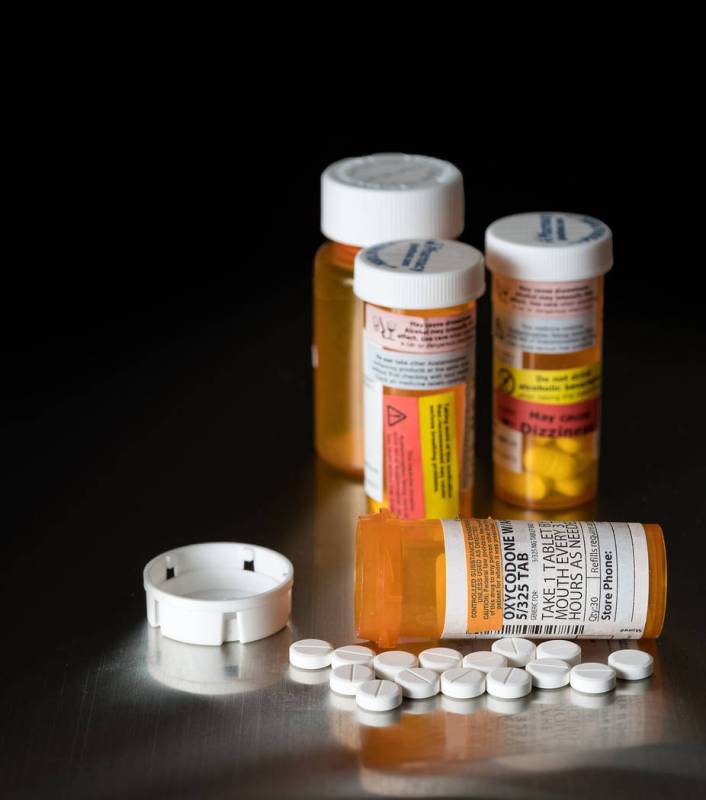
Opioid-related deaths dropped in Nevada in 2016 from a year earlier, but hospitalizations and prescription rates rose, Nevada Department of Health and Human Services data presented this week show.
At the Opioid State Action Accountability Meeting in Carson City, convened Monday by Gov. Brian Sandoval, state agencies said access to reliable, unlimited data remains a hindrance in fighting opioid problems.
Presenters at the meeting, which was live-streamed in Las Vegas at the Sawyer Building, said data from hospitals, emergency medical services and law enforcement are limited, lacking information that could be used to better illustrate the opioid problem. Less complete data can hamper researchers’ analyses and make devising solutions harder.
“What we try to do is fully explain the nuances in the data,” Health and Human Services Chief Biostatistician Kyra Morgan told the taskforce. “Unfortunately, we do have limitations.”
Based on 2016 data, the statewide opioid prescription rate is 87.5 per 100 residents, compared with 66.5 nationwide. That’s up from 81 per 100 in 2015 and 78.1 in 2013.
Rates vary by county. Clark County had a prescription rate of 84.3 per 100 in 2016, but in Nye County, it was 155.6 — more than one prescription per person.
Hospitalizations also rose, but the data counting hospitalizations are based on how an emergency physician codes the visit.
“We don’t have a nice, clean box that says, ‘This is an opioid-related visit,’ ” said Julia Peek, community services deputy administrator at the Health and Human Services department.
With that in mind, the number of people admitted strictly for an opioid dependence didn’t increase significantly. But doctors coded an opioid dependence for more hospitalized individuals.
Assembly Bill 474, passed in the Legislature this session and signed into law, is expected to help fight the opioid crisis by letting the state create its own opioids database and allowing for disciplinary action against practitioners who inappropriately prescribe the drugs. The law will take effect Jan. 1.
Contact Jessie Bekker at jbekker@reviewjournal.com or 702-380-4563. Follow @jessiebekks on Twitter.